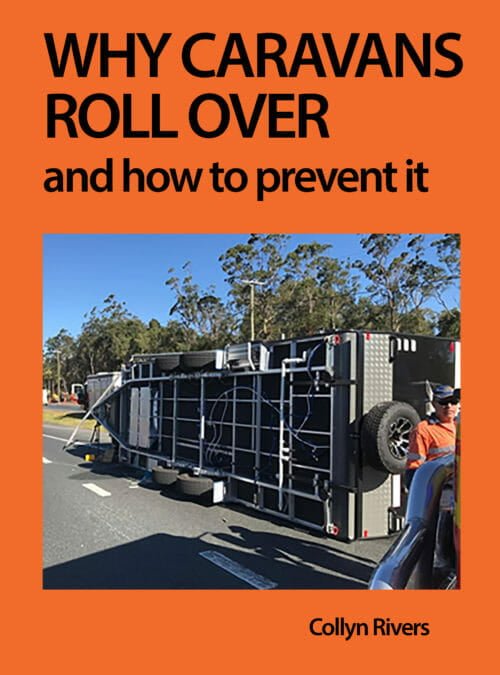by Collyn Rivers
Fast Battery Charging from Generators
Fast battery charging from generators is cheap, effective and relatively simple. Few people, however, know how to do it. In many a campground, generators plug away for hours on end in vain attempts to fully charge their batteries. This article by RV Books’ Collyn Rivers explains how to get it right first and every time.

Most 120 and 230-volt generators also have a DC 12 volt and (typically) 8 amp output. Pic: Honda.
Almost all portable generators have a nominal 12-volt output. This outlet is primarily intended for powering 12-volt appliances directly (i.e. with no need for a battery). It typically supplies up to 8.0 amps. The ’12-volt’ output is typically 13.65 volts on light loads. Such output will partially charge a deeply discharged battery at 5-8 amps. Once the battery is 40%-50% charged, the current drops to an amp or so. Even if that outlet is marked ‘battery charger’ it may take a day or more to reach 60%-70%. It should eventually reach full charge, but may take a week or more to do so.
The simple solution
A cheap way of achieving fast battery charging from generators is via a basic 20 to 30 amp (230 volts) chain-store battery charger. You connect this to the generator’s 230 volts ac outlet. This will recharge a 100 amp hour battery from deeply discharged to about 80% within about six hours. A more costly multi-stage (dc-dc) 20 amp charger may reach 100% in even less time. Do not attempt to charge lithium batteries via a cheap charger. While normally rugged, (as with AGM batteries) they can be damaged or wrecked by over-voltage charging.
For a fuller explanation see dc-dc charging on this website.
Switch-mode technology issues
A known problem with fast battery charging from generators relates to some early so-called ‘switch-mode’ chargers and inverter/chargers. Some work well from grid power but not well (or even not all) from most 230-volt generators. The problem is not necessarily related to either unit’s quality or price: it is that a switch-mode power supply converts power by using electronic switching devices that rapidly turn on and off. Much like an engine’s flywheel, storage components (such as inductors or capacitors) supply power when the switching device is in non-generating brief states.
Switch-mode power supplies are highly efficient. They are widely used in computers and other sensitive equipment requiring a stable and efficient power supply. Switch-mode devices, however, require ‘clean’ electricity. That from basic petrol generators (the ultra-cheap eBay specials), however, is ‘dirty’.
Such generators speed up during each power stroke. They slow again on each compression stroke. The generator flywheel’s resistance to changing only partially dampens such rapid changes (they lack the size and mass to do so sufficiently). The consequent rapid speed changes cause voltage spikes on the electric output. Sensing ‘dirty’ electricity may cause a switch-mode charger’s protective circuits to limit output, or even switch itself off.
An owner faced with this (not uncommon) issue has a further problem. While the cause is the generator, each vendor may claim their product works fine (albeit not together). Each vendor tends to blame the other’s product. To avoid this, always buy both from the same vendor insisting they must work with each other.
This issue primarily affects low-priced petrol generators. It does not happen with inverter-generators such as the Honda/Yamaha type products.
In Australia, Power Protection Systems (supplier of Mastervolt etc) has a simple modification. It cleans up dirty input and tricks inverter-chargers into accepting any remaining ‘noise.’ It was designed specifically for Onan’s 3600 petrol generators and Dakar chargers, but is claimed to work with other generators.
Fast battery charging from generators – the power factor
A further issue called ‘power factor’ causes alternating-current (i.e. grid power) chargers and inverter chargers to charge at lower rates than had been expected. Power factor causes the alternating current to peak at a different time than the voltage. It’s rather like rowers sculling out of synchronisation. The same action and energy input has less effect. Power factor is expressed as between 0 and 1.0. The higher the better.

Adverse power factor is like two scullers (Ampy and Volty) rowing out of synchronisation. They do the same work as if they were together, but the boat will not go as fast. Pic: ‘Concentration’ – copyrightdreamstime.com
Most battery chargers have a power factor between 0.65 and 0.7. This necessitates using a generator that is correspondingly larger. Worse, most such chargers are only 70% efficient. A 12 volt, 30 amp (360 watts) such charger may thus need a 1000 watt generator to run it.
Switch mode chargers originally had poor power factor, but many now are 0.85-0.9 (i.e. 85%-90% efficient). Providing you avoid the cheap ‘specials’ this is largely a historical problem.
A charger that has really poor power factor can prevent an otherwise adequate-sized generator developing full power. A quick and dirty fix, that often works, is to run a 100-watt incandescent globe or soldering iron at the same time. It is not efficient but that resistive load tricks the generator into working as intended. An electrician can install power factor correcting capacitors to fix the problem, but the cost of doing so may be similar to buying a higher quality (that will power factor correction already built-in).
Further information
This article will hopefully help speeding battery charging from generators and other battery-charging problems. Many similar issues bedevil electrical, battery and solar systems in camper trailers, caravans, campervans and motorhomes.
That needed to fix them (and particularly avoiding problems in the first place) is in Caravan & Motorhome Electrics. It is also in the associated (now 4th edition) Solar That Really Works (for cabins and RVs) and/or Solar Success (for home and property systems). These books are now in eBook and paperback versions. Many auto-electricians use them as working guides. The Caravan & Motorhome Book covers every aspect of RV usage.




